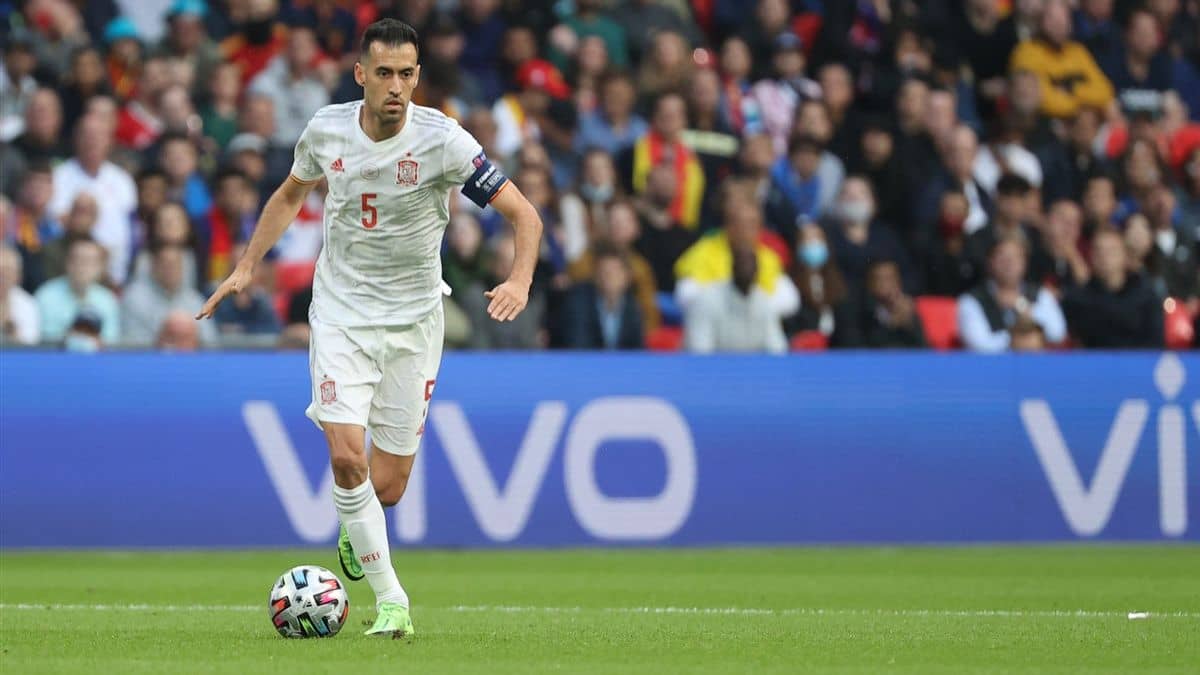
In the heart of soccer’s rich history, the number 5 jersey has been worn by legends who not only defended their turf but also inspired millions. This sacred number signifies more than just a position on the field; it’s a symbol of leadership, resilience, and unparalleled skill.
Curating a list of the top 20 players who’ve donned this number reveals a tapestry of talent that transcends generations. If you’re keen to know who made the cut and why they’re celebrated, you’ll find the insights you’re searching for just ahead

Fabio Cannavaro, an emblematic figure in Italian soccer, captivated fans worldwide with his masterful defense and leadership, culminating in his 2006 Ballon d’Or victory and pivotal role in Italy’s World Cup triumph.
Standing at 5’9′, Cannavaro wasn’t the tallest defender, yet his understanding of the game, impeccable timing, and aerial prowess set him apart. His ability to read the game was unparalleled, often making significant interceptions and tackles that seemed beyond reach.
You’ll notice his leadership wasn’t merely about guiding his team on the field; it extended off the pitch, influencing the team’s morale and cohesion. His Ballon d’Or victory wasn’t just a personal achievement; it underscored the significance of defensive artistry in a sport often dominated by the accolades of forwards.
2. Franz Beckenbauer
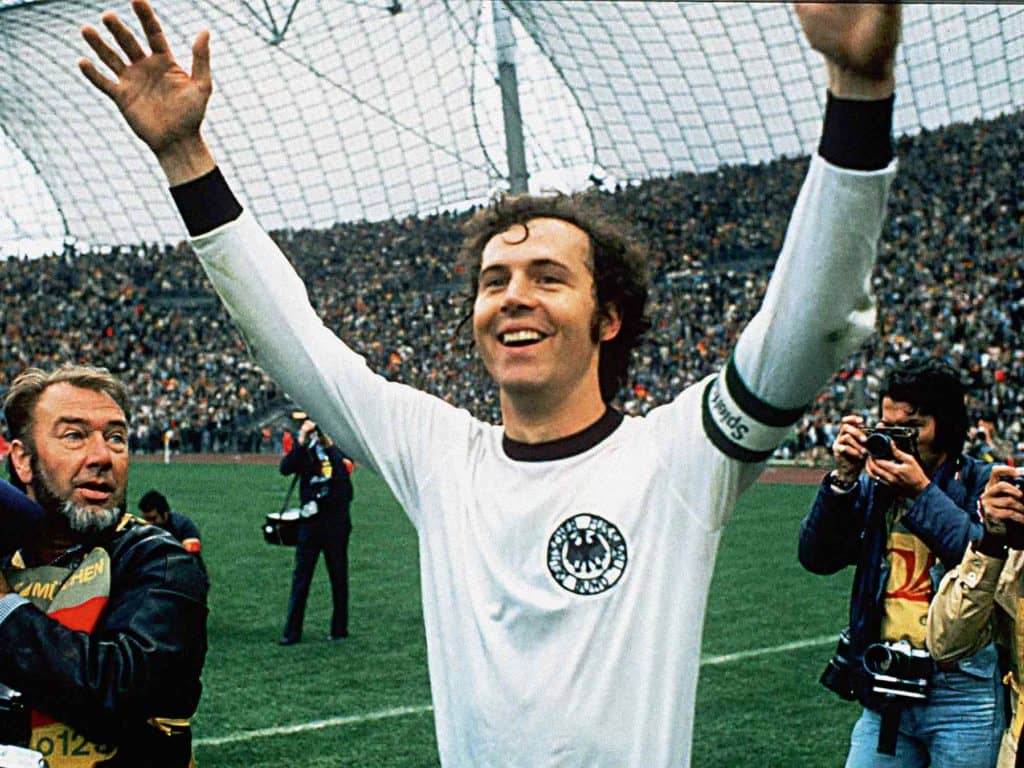
While Cannavaro showcased the art of defense in the modern era, Franz Beckenbauer, known as ‘Der Kaiser’, revolutionized the sweeper role, achieving unparalleled success by winning the World Cup both as a player and a manager.
Beckenbauer’s intelligence on the field redefined how a defender could influence the game, not merely by stopping attackers but by initiating plays from the back. His ability to read the game and make decisive interventions set new standards for defenders.
As a manager, he applied this tactical acumen, leading Germany to victory with a style that balanced defensive solidity with attacking flair. Beckenbauer’s legacy isn’t just in the trophies he won but in the elegant, effective style of play he championed, influencing generations of players and coaches.
3. Zinedine Zidane

A French maestro known for his unparalleled skill, Zinedine Zidane captivated the football world by winning the World Cup and securing multiple FIFA World Player of the Year awards.
You can’t help but admire his ability to control the game, making decisive moves that often led to victory. His influence extends beyond his playing days, as he’s also made his mark as a highly successful manager.
| Aspect | Details |
|---|---|
| Nationality | French |
| World Cup Win | 1998 |
| FIFA Awards | Multiple times |
| Managerial Role | Real Madrid, Champions League wins |
Zidane’s legacy is a tribute to his skill, strategic thinking, and leadership on and off the field, setting a benchmark for future generations.
4. Carles Puyol
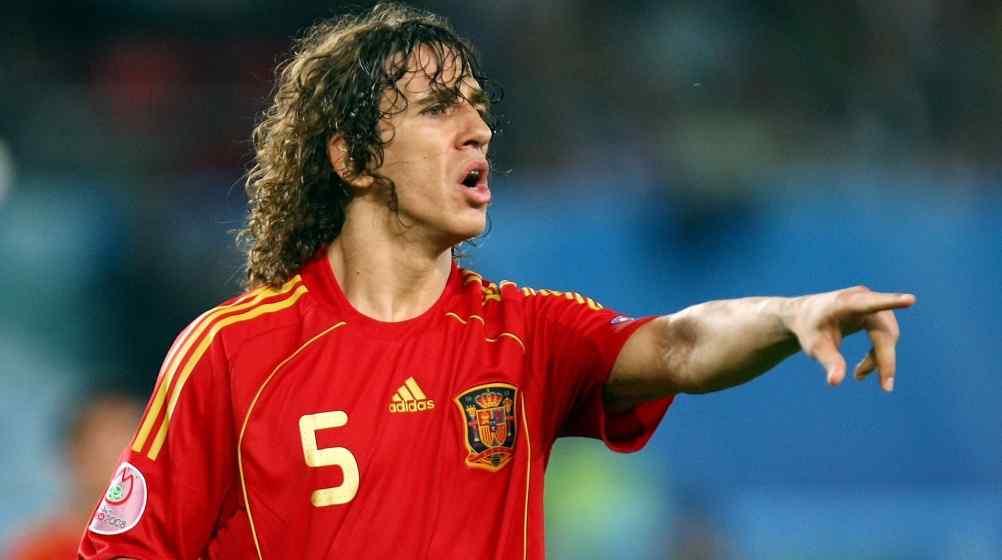
Embodying Barcelona’s defensive linchpin for more than ten years, Carles Puyol’s fierce commitment and leadership set him apart as a football icon.
You’d recognize his playstyle as not just robust but remarkably intelligent. He wasn’t the tallest, yet his aerial ability and timing in tackles were exemplary.
Puyol’s leadership transcended beyond vocal commands; his actions on the field inspired teammates and intimidated opponents.
Analyzing his career, it’s evident his presence was pivotal in Barcelona’s domestic and international successes, including their UEFA Champions League triumphs.
His adaptability, whether playing center-back or full-back, showcased his tactical awareness. Puyol wasn’t just a player; he was a symbol of resilience, embodying the spirit of Barcelona and setting a benchmark for future generations.
6. Sergio Busquets

Sergio Busquets, the midfield maestro for both Barcelona and Spain, has been pivotal in orchestrating their plethora of victories, including the prestigious World Cup and Euros. His role, often pivotal, is essential in both offensive and defensive plays.
You’ll find his ability to read the game unparalleled, positioning himself to intercept passes and initiate attacks with an almost prescient awareness. His tactical intelligence allows him to control the tempo, making him indispensable.
His contributions go beyond mere statistics; they’re about the calmness he brings, the spaces he creates, and the defensive shield he provides. For fans seeking to understand the nuances of modern football, Busquets’ play is a masterclass in midfield dominance, combining technical skill with strategic foresight.
7. Claudio Gentile

Claudio Gentile’s defensive prowess was instrumental in Italy’s triumph at the 1982 World Cup, showcasing an uncompromising style that set him apart as a formidable opponent on the field.
His ability to neutralize the opposition’s key players was unmatched, making him a critical component of Italy’s defense. Gentile’s approach was not just about physicality; it was also about understanding the game deeply and knowing when to apply pressure.
| Aspect | Detail |
|---|---|
| Playing Style | Uncompromising |
| Key Skill | Opponent Neutralization |
| Contribution | 1982 World Cup Victory |
| Legacy | Formidable Opponent |
Gentile’s legacy as a number 5 is marked by his tough tackling and strategic mind, which were pivotal in securing Italy’s World Cup victory, underscoring the importance of a solid defense in winning championships.
8. Rio Ferdinand
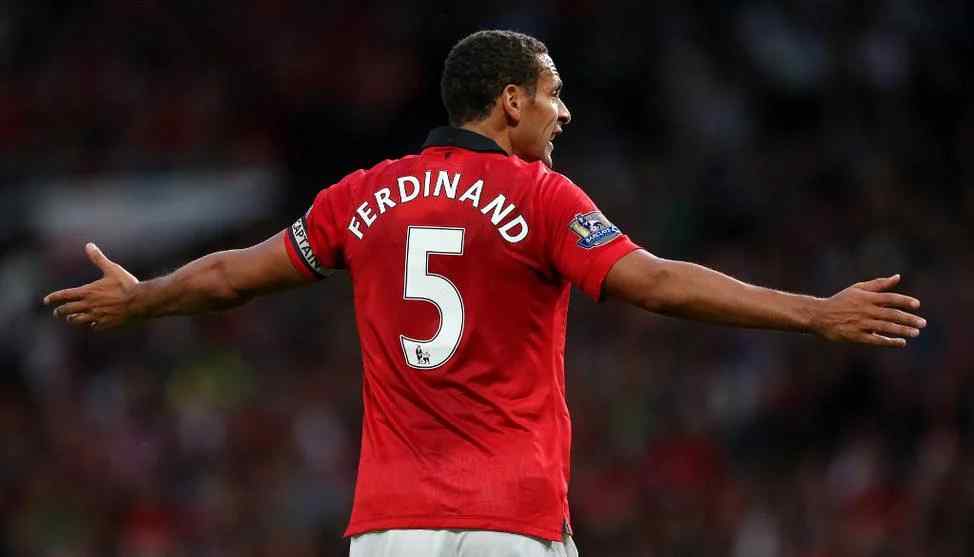
At the heart of Manchester United’s defense, Rio Ferdinand’s elegant playing style, combined with his strength and leadership, set him apart as a distinguished center-back for both his club and the England national team.
- Exceptional Reading of the Game: Ferdinand’s ability to anticipate opponents’ moves allowed him to make vital interceptions, showcasing his understanding of the sport.
- Aerial Dominance: His height and physical prowess contributed greatly to his team’s defensive solidity, making him a formidable opponent in aerial duels.
- Leadership On and Off the Pitch: Beyond his technical skills, Ferdinand’s leadership qualities were instrumental in guiding younger players and maintaining team morale, ensuring a cohesive unit ready to compete at the highest levels.
Ferdinand’s legacy isn’t just in his achievements, but in the elegance and intelligence he brought to the game.
9. Michael Essien
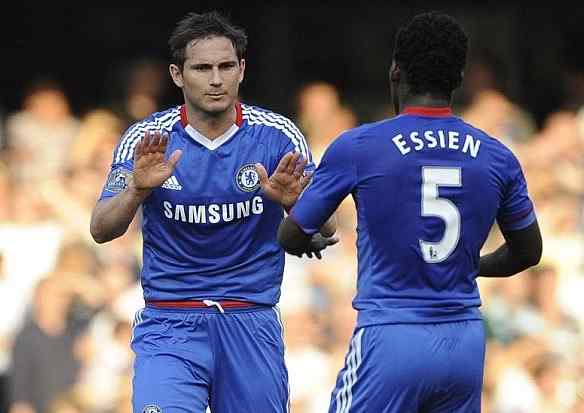
Renowned for his dynamic presence in midfield, Michael Essien was a cornerstone for Chelsea, known for his unmatched power and versatility.
His ability to adapt to various roles made him indispensable, showcasing his exceptional tactical intelligence and physicality. Essien’s contributions were pivotal in Chelsea’s success, embodying the essence of a modern midfielder.
| Aspect | Insight |
|---|---|
| Role | Dynamic Midfielder |
| Strengths | Power, Versatility, Tactical Intelligence |
| Contribution | Essential for Chelsea’s success |
| Style | Modern Midfielder |
| Impact | Indispensable to team dynamics |
Essien’s tenure at Chelsea highlighted his significance in the team’s midfield, blending physical prowess with tactical acumen. His legacy as a dynamic midfielder with unmatched versatility continues to inspire, underscoring the importance of adaptability and power in football.
10. Jorginho

Jorginho’s mastery in midfield, characterized by his exceptional vision and precise passing, played a significant role in Italy’s Euro 2021 triumph.
You can’t overlook his unique penalty-taking technique, which has set him apart in high-pressure situations. His ability to read the game and make decisive passes has been instrumental in controlling the midfield and setting the pace of play. Jorginho’s contributions go beyond just his technical abilities:
- Exceptional Game Intelligence: Understands the flow of the game, making key decisions that influence the outcome.
- Leadership Qualities: Stepped up in important moments, guiding the team with composure.
- Defensive Contributions: Not just an offensive asset, his defensive positioning and ability to regain possession have been crucial.
Analyzing Jorginho’s role, it’s clear his impact on Italy’s success is profound and multifaceted.
11. Daniel Van Buyten
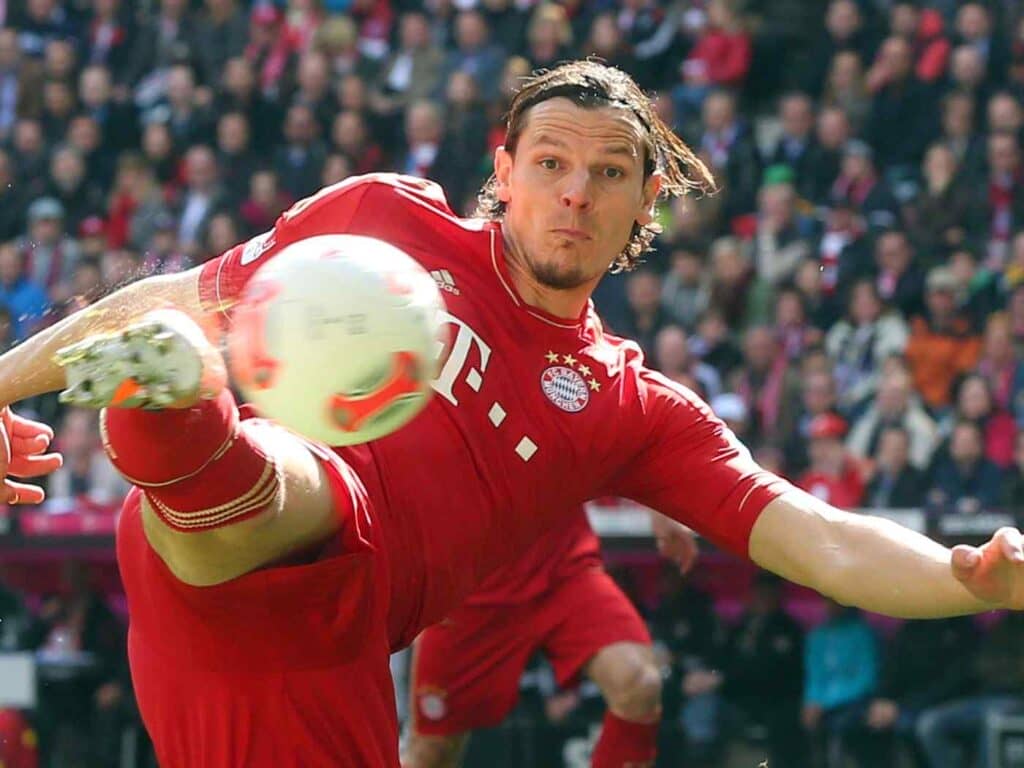
Shifting focus from the midfield maestro Jorginho, let’s explore the defensive prowess of Daniel Van Buyten, a towering Belgian defender celebrated for his aerial ability and significant contributions to Bayern Munich.
Van Buyten’s tenure with the Bavarian giants was marked by an exceptional blend of physicality and technical skill, making him a formidable presence in the heart of defense. His ability to intercept plays and dominate aerial duels contributed immensely to Bayern’s defensive solidity.
Additionally, Van Buyten wasn’t just a defensive stalwart; his knack for scoring critical goals, especially from set-pieces, added another dimension to his game. Analyzing his career, it’s clear that his influence extended beyond mere defense, embodying the qualities of leadership and resilience.
12. Niko Kovač

From the defensive stronghold of Daniel Van Buyten, we now spotlight Niko Kovac, a Croatian midfielder whose defensive expertise and leadership qualities impacted both his playing and coaching careers.
Kovac wasn’t just a player; he was a strategist on the field, smoothly moving into a coaching role post-retirement.
- Defensive Mastery: Kovac’s ability to read the game made him a formidable defensive midfielder, breaking down opposing plays with precision.
- Leadership: His leadership on the field was undeniable, guiding his teammates with confidence and strategic insight.
- Coaching Shift: Successfully shifting from player to coach, Kovac has applied his tactical knowledge and leadership to manage teams at the highest level, showcasing a deep understanding of football dynamics.
Kovac exemplifies how defensive prowess and leadership can influence both playing and coaching careers, leaving a lasting legacy in the game.
13. Lubos Kubik

Lubos Kubik, known for his versatility on the field, excelled as both a libero and midfielder, displaying a unique blend of defensive skill and midfield creativity. This blend allowed him to adapt to the dynamic nature of soccer, making him a valuable asset to his team.
His ability to seamlessly shift between defense and midfield not only showcased his technical proficiency but also his deep understanding of the game’s strategic aspects.
Kubik’s vision on the field was exceptional; he could anticipate plays, making important interceptions or delivering precise passes that often set up scoring opportunities.
His versatility wasn’t just about playing different roles; it was about excelling in them, demonstrating a level of skill and intelligence that set him apart from many of his contemporaries.
14. Sebastian Kehl
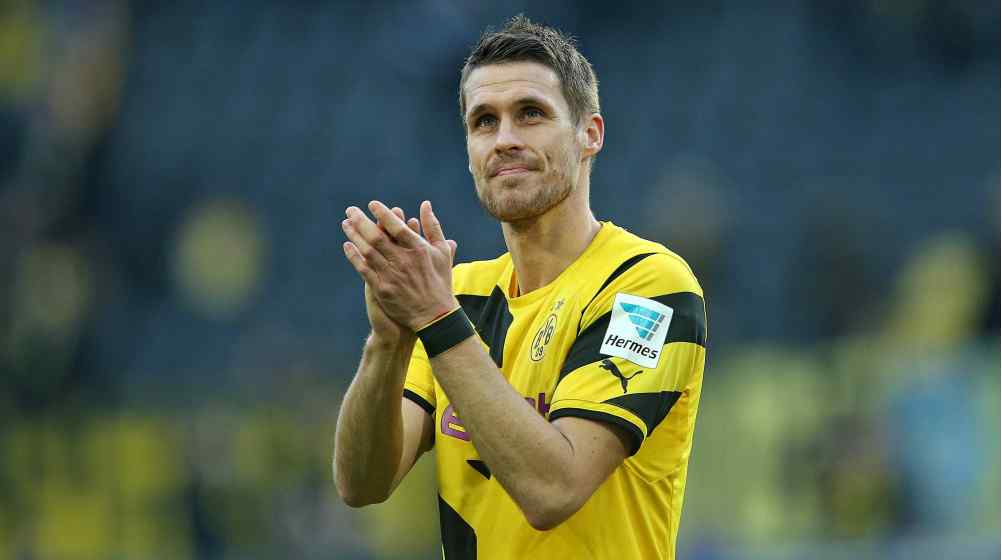
Sebastian Kehl carved out a distinguished career at Borussia Dortmund, anchoring the midfield and playing a pivotal role in the team’s numerous triumphs. His time at Dortmund highlights not just his skill but his leadership and adaptability on the field. Analyzing his contribution, several aspects stand out:
- Tactical Intelligence: Kehl’s understanding of the game allowed him to excel in multiple midfield roles, adapting his play style as needed.
- Leadership: His presence on the field uplifted the team, guiding younger players and setting a standard for commitment.
- Consistency: Over the years, Kehl proved himself to be a reliable force for Dortmund, rarely underperforming and always contributing to the team’s objectives.
Understanding Kehl’s impact goes beyond mere statistics; it’s about recognizing the intangible qualities he brought to every match.
15. Rodolfo Cardoso
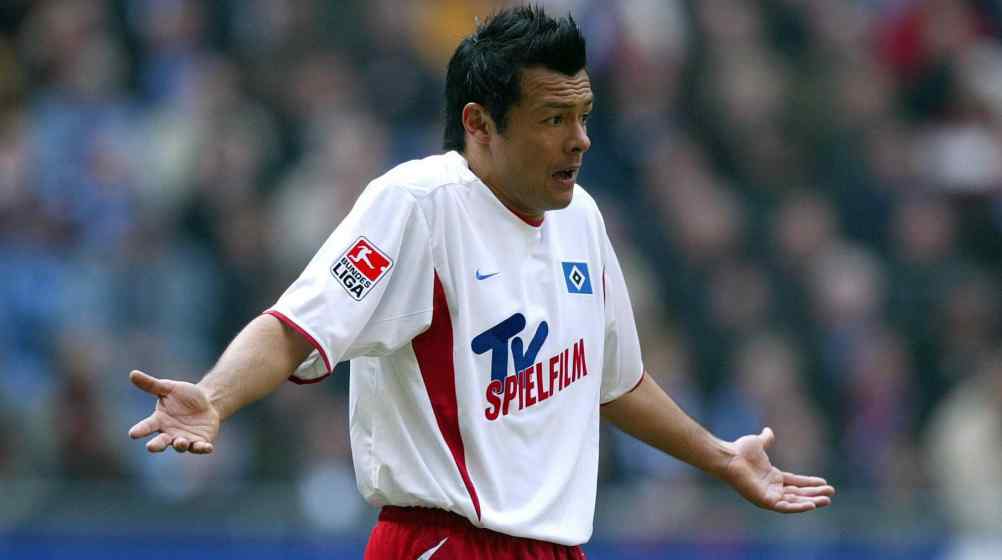
Rodolfo Cardoso’s career in Germany, marked by his midfield mastery, smoothly shifted into influential coaching roles after his retirement. You’ve seen how midfielders often translate their on-field vision into tactical acumen off the pitch, and Cardoso exemplifies this change.
His understanding of the game’s nuances, honed during years in Germany’s competitive leagues, positioned him uniquely for a second career on the sidelines. Rather than fading away, he leveraged his experience, embodying the smooth move from player to coach.
Analyzing his coaching style, it’s clear he prioritizes discipline and creativity, hallmarks of his playing days.
This approach not only respects the game’s traditions but also injects a modern tactical perspective, illustrating how Cardoso continues to influence football, nurturing the next generation with a blend of experience and innovation.
16. Marcell Jansen

Marcell Jansen, renowned for his exceptional speed and precise crossing ability, smoothly converted from a dynamic player on the pitch to the influential president of Hamburger SV. His journey from the field to the boardroom epitomizes a seamless shift, leveraging his on-field insights for off-field success.
- Versatility: Jansen’s adaptability on the pitch, playing various positions, mirrors his flexible approach in administrative roles.
- Leadership: Shifting to Hamburger SV’s presidency, Jansen demonstrated leadership qualities that were evident during his playing days.
- Influence: His influence extends beyond administrative decisions, impacting the club’s culture and future direction.
Analyzing Jansen’s career, it’s clear his football intelligence and commitment have been pivotal in his post-retirement role, driving Hamburger SV forward with a blend of passion and strategic foresight.
17. Salif Sane
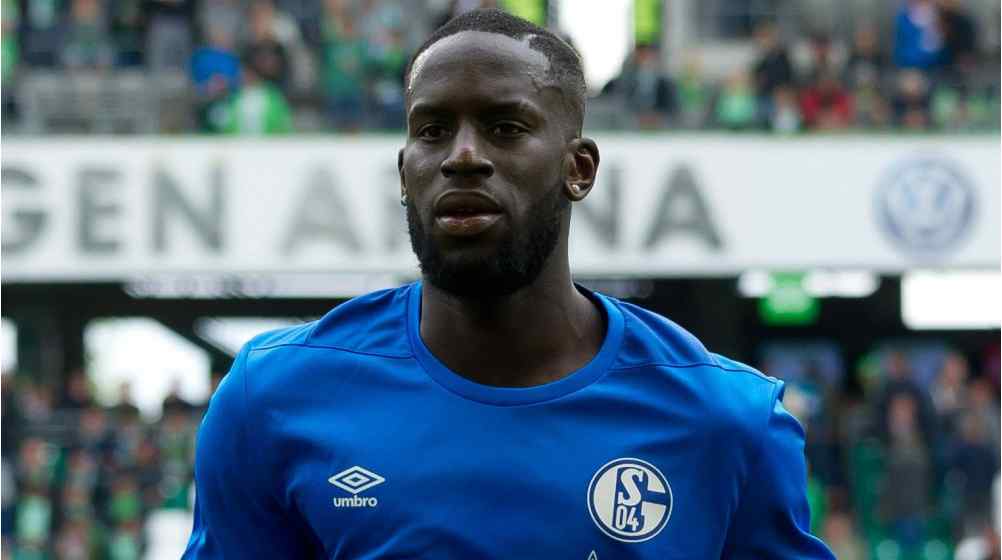
Salif Sane’s formidable presence in defense, marked by his exceptional strength and athleticism, has been a cornerstone of Schalke 04’s strategy.
You’ve seen him outmuscle forwards, chase down wingers, and leap above attackers to head the ball clear. His impact isn’t just physical; it’s tactical, making him a player you can’t overlook.
| Attribute | Description | Impact on Schalke 04 |
|---|---|---|
| Strength | Exceptional | Solidifies defense |
| Athleticism | High | Enhances mobility |
| Tactical IQ | Savvy | Improves positioning |
| Leadership | Commanding presence | Boosts team morale |
Analyzing Sane’s role, you recognize how his attributes translate into on-field success. His blend of physical prowess and footballing intelligence makes him a player that not just defends but inspires.
18. Marcelo Bordon

Frequently hailed for his exceptional aerial skills and leadership, Marcelo Bordon greatly bolstered Schalke 04’s defense during his tenure.
You’ll find his influence wasn’t just limited to his on-field performance. His presence in the locker room was equally impactful, molding the team’s spirit and work ethic.
Analyzing Bordon’s contributions reveals several key points:
- Bordon’s aerial prowess not only neutralized threats from set-pieces but also made him a scoring threat on the other end.
- His leadership on the field acted as the glue that held the defense together, especially during high-pressure matches.
- His ability to read the game allowed him to make critical interceptions and tackles, preventing potential goals.
19. Matt Hummels

Shifting focus, you’ll find Matt Hummels’ contributions to both Bayern Munich and Borussia Dortmund underscore his reputation as a defender of high intelligence, adept passing abilities, and significant influence on the pitch.
His tenure at these clubs showcases a blend of tactical acumen and technical skill, setting him apart in the football world. Hummels has a knack for reading the game, allowing him to intercept plays and initiate attacks from the back, contributing to his team’s overall strategy.
His passing range is impressive, often launching precise long balls that move defense into attack seamlessly. This skill set not only solidifies his role as a central figure in his teams but also highlights the evolving nature of modern defenders.
Hummels exemplifies how intelligence and technical ability can elevate a player’s impact on the field.
20. Fernando Redondo

In the heart of Real Madrid’s midfield, Fernando Redondo dazzled with his elegance and vision, playing a pivotal role in the club’s late 1990s and early 2000s triumphs.
You’d recognize his ability to read the game as second to none, effortlessly dictating the pace and direction of play. His contributions weren’t just about what he did with the ball but also his leadership on the field.
- Elegance: Redondo’s playstyle combined grace with effectiveness, making complex moves look effortlessly simple.
- Vision: His foresight allowed him to execute passes that few could anticipate, setting up important plays.
- Leadership: Beyond skills, his presence commanded respect and inspired his team, elevating the performance of those around him.
In analyzing Redondo’s legacy, it’s clear his influence extended beyond mere statistics, embodying the artistry of soccer at its finest.



